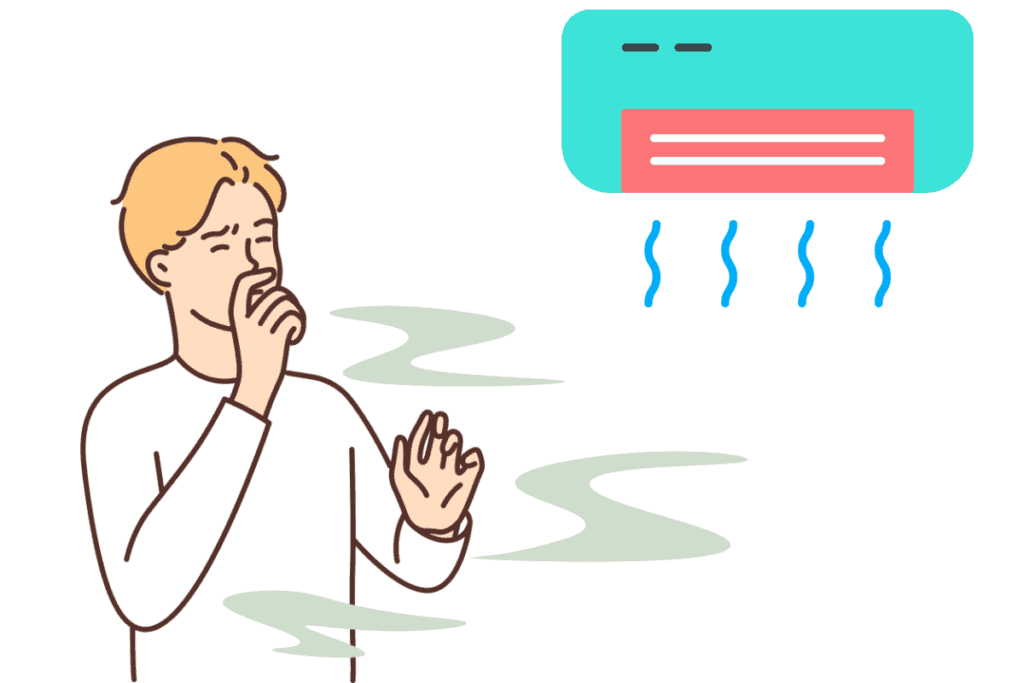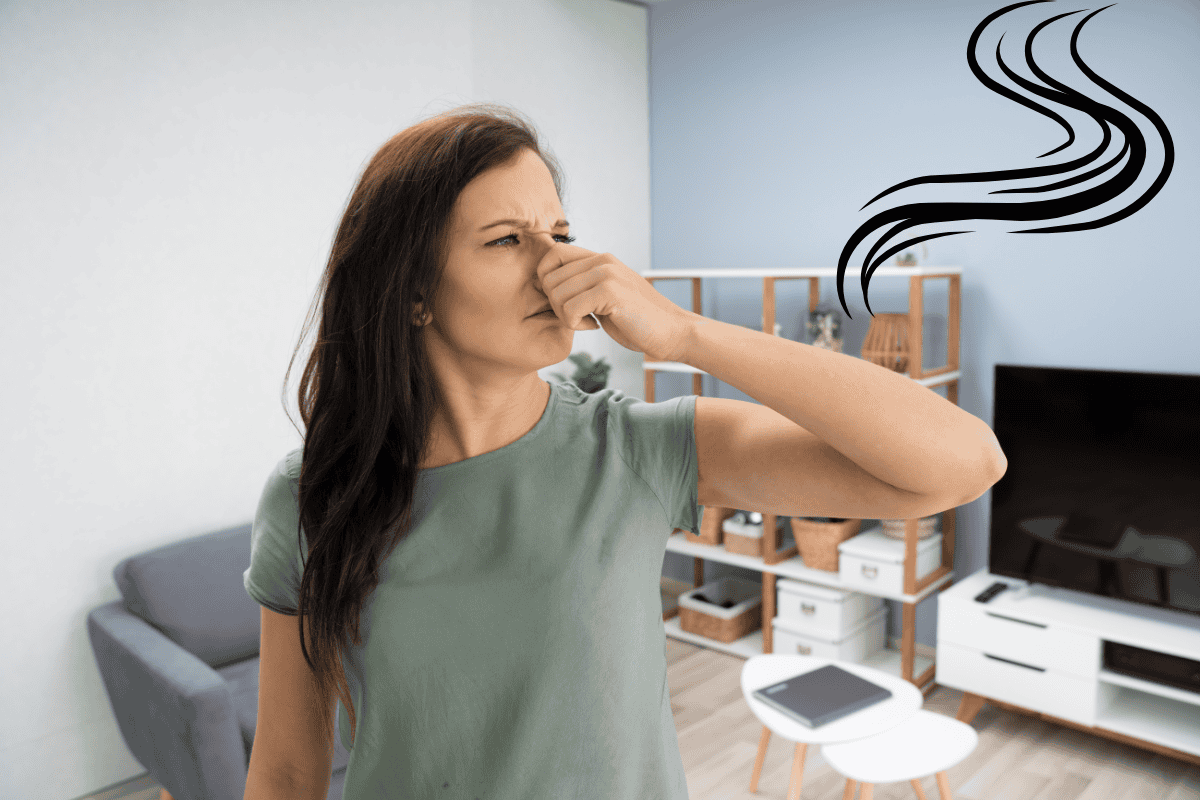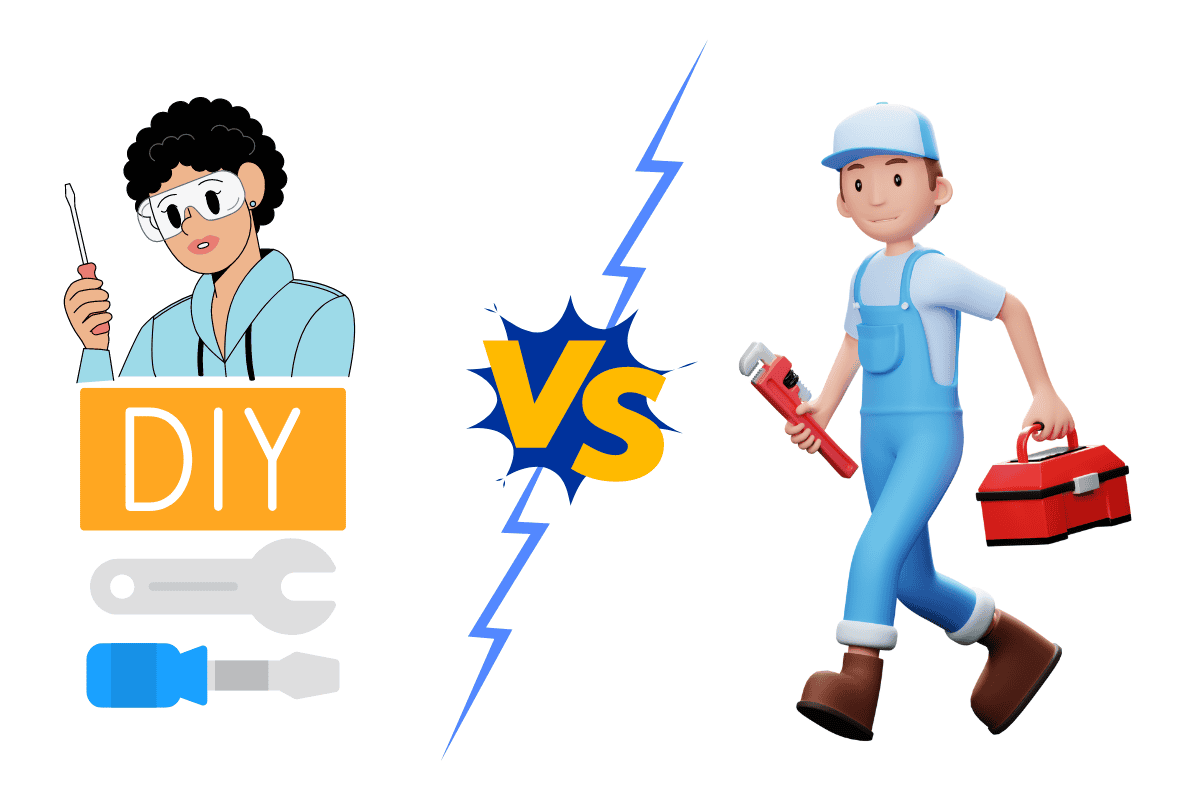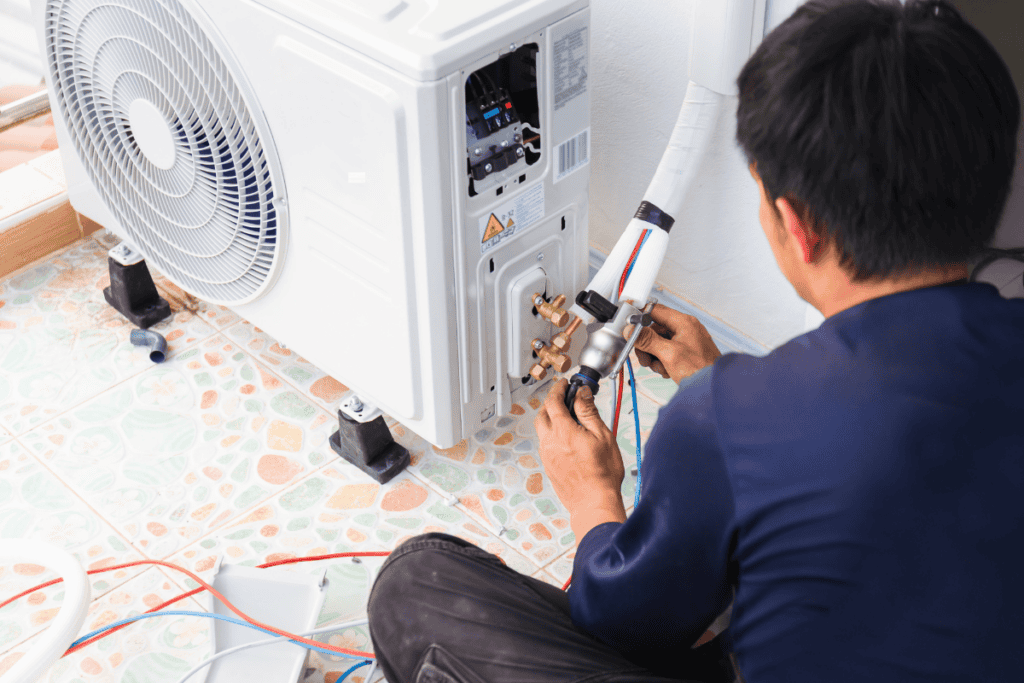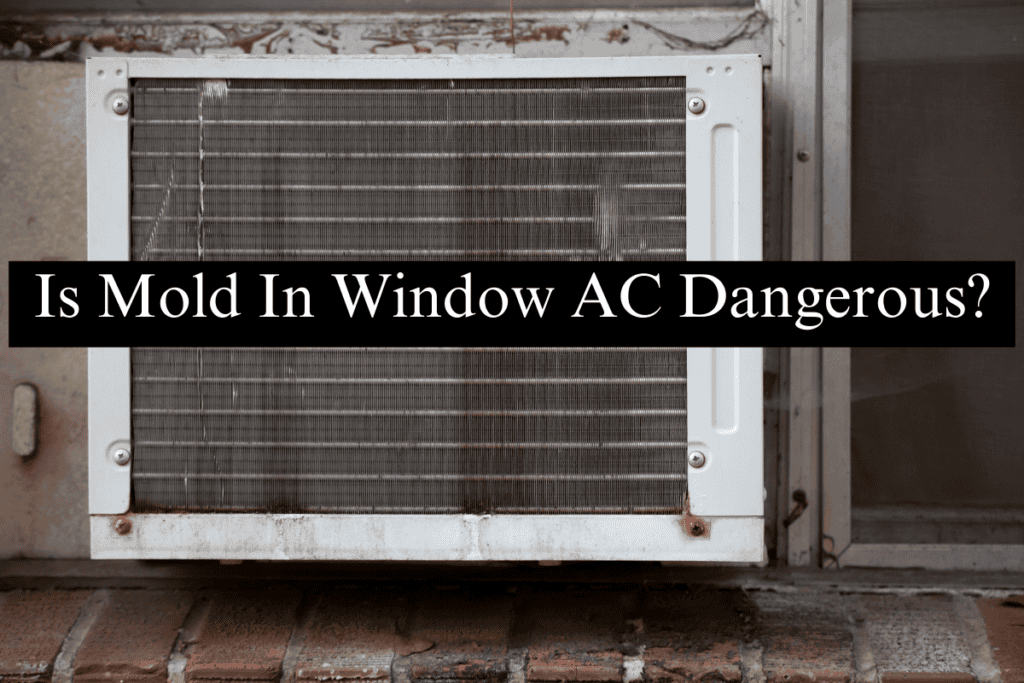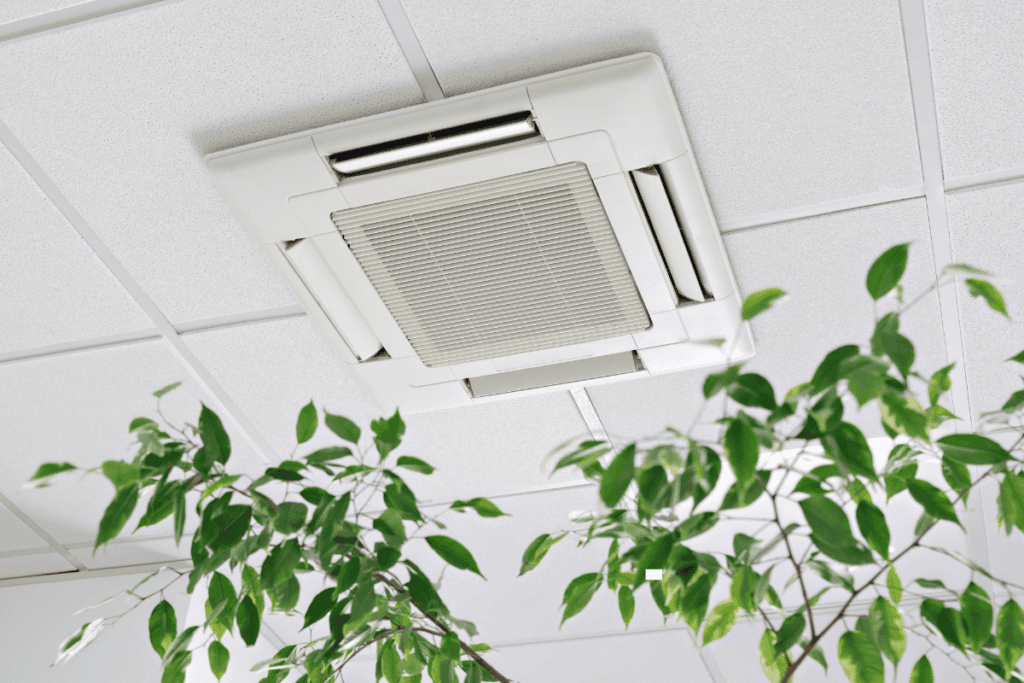An unpleasant smell coming from your air conditioner can be a frustrating and concerning issue. Not only does it make your living space less comfortable, but it also indicates that there may be underlying problems with your air conditioning system.
Ignoring these odors can lead to more severe issues down the line, affecting your AC’s performance and longevity. Maintaining a clean and odor-free air conditioner is important for good air quality and extending the life of your unit.
By understanding the common causes of bad smells emanating from your AC, you can take timely and effective action to resolve the issue. In this comprehensive guide, we will explore various types of odors that can come from your system, discuss their potential causes, and provide you with practical solutions to eliminate these unpleasant smells, helping you keep your home fresh and comfortable.
Contents
Types Air Conditioners Smell and How To Get Rid Of Them
1. Musty or Mildew Smell
A moldy odor coming from your air conditioner is a clear indication of the presence of mold in the system. This unpleasant odor arises due to the accumulation of moisture within the air conditioning unit, often caused by factors such as poor drainage, clogged air filters, and high humidity levels.
When left unchecked, mold and mildew can grow on various components of your AC. Exposure to mold can trigger allergic reactions and respiratory issues like asthma symptoms, shortness of breath, wheezing, or coughing, especially in individuals with pre-existing allergies or sensitivities.
To get rid of the moldy smell from your air conditioner, follow these steps:
- Turn off and unplug the AC for safety during the cleaning process.
- Inspect the air filters and clean or replace them if they are clogged or dirty. Clogged filters can restrict airflow and contribute to moisture buildup.
- Clean the evaporator coils and drain pan thoroughly, using a soft brush or coil cleaner to remove any visible mold or mildew growth.
- Check the condensate drain line for clogs and ensure proper drainage. Clear any blockages by flushing the line with a solution of water and vinegar.
- Improve ventilation in the area surrounding your AC unit. You can consider using a dehumidifier to control humidity levels, as high humidity can promote mold growth.
2. Rotten Egg Smell
If you notice a rotten egg smell from your air conditioner, it could be due to a dead animal trapped in the ductwork or inside the unit itself. This unpleasant odor can quickly spread throughout your home when you turn on your air conditioner.
Small animals like rodents or birds may find their way into your system through gaps or openings in the ducts, and if they become trapped and die, the decomposing body will produce a strong, foul smell.
This issue often arises due to a lack of regular inspection and maintenance of the air conditioning system, allowing the problem to go unnoticed until the smell becomes apparent.
To get rid of the rotten egg smell from your air conditioner, follow these steps:
- Turn off your air conditioner and unplug the unit for safety during the inspection and cleaning process.
- Carefully inspect the ductwork and the interior of the AC unit for any signs of dead animals. Look for openings or gaps where animals could potentially enter the system.
- If you locate a dead animal, remove it while wearing protective gloves and dispose of it properly. Clean the area thoroughly using a disinfectant solution to remove any remaining odor-causing bacteria.
- Use appropriate materials like metal tape or duct sealant to close off entry points in the duct system.
- Schedule regular maintenance checks with a professional technician to identify and address any issues with your air conditioning system before they lead to unpleasant odors or more serious problems.
3. Burning Smell
If you notice a burning odor coming from your air conditioner, it could be a sign of several potential issues. One common cause is the overheating of electrical components within the AC. This can happen due to a variety of reasons, such as a malfunctioning capacitor, a failing compressor, or a damaged fan motor.
Another possible cause is the accumulation of dust or debris on the heater coils, which can burn off when the heating function is activated, producing a burning odor. In some cases, faulty wiring or worn-out mechanical parts can also lead to a burning smell emanating from your air conditioner.
To get rid of the burning smell and address the underlying issues, follow these steps:
- Turn off your air conditioner immediately and unplug the unit from the power source.
- Inspect the electrical components of your AC system for signs of overheating, such as melted wires, charred insulation, or burnt odors. If you notice any of these signs, it’s essential to call a professional HVAC technician for repairs.
- Clean the heater coils to remove any accumulated dust and debris by using a soft brush or a vacuum cleaner with a brush attachment.
- Check the wiring of your air conditioner for any signs of damage or deterioration. If you suspect any issues with the wiring, contact a professional to assess and repair the problem.
- Inspect the mechanical parts of your AC, such as the fan motor and compressor, for wear and tear. If these components are worn out or damaged, they may produce a burning smell and require replacement.
4. Chemical Smell
If you notice a chemical odor coming from your air conditioner, it could be due to a refrigerant leak or the presence of volatile organic compounds (VOCs) in the system.
Refrigerant is an important component of your AC system, responsible for cooling the air. If the lines that carry the refrigerant become damaged or corroded, it can cause a leak, resulting in a strong chemical odor.
Another cause of a chemical smell is the presence of VOCs, which can be released from new air conditioner components or chemical cleaners used during maintenance.
To get rid of the chemical smell and address the underlying issues, follow these steps:
- Turn off your air conditioner and unplug the unit from the power source.
- Inspect your AC system for signs of refrigerant leaks. Look for oil residue or stains around the coils, lines, and connections. If you suspect a leak, it’s essential to call a professional technician to repair the damaged components and recharge the refrigerant.
- If the chemical smell is due to VOCs from new components or recent maintenance, make sure that the area around your air conditioner is well-ventilated. Open windows and doors to allow fresh air to circulate and help disperse the chemical odor.
- Running an air purifier can also help remove any lingering VOCs in your home.
5. Sewage Smell
A sewage smell emanating from your air conditioner can be a particularly unpleasant and concerning issue. This foul odor is often caused by a blocked or clogged condensate drain line.
As your AC cools the air, it also removes excess moisture, which is collected in a drain pan and then expelled through the drain line. If this line becomes clogged with dirt, debris, or mold growth, the water can become stagnant, leading to a sewage-like smell.
Another cause is the improper installation of the drain line, where it may be connected to the sewer line instead of draining outside. In some cases, a sewer line backup can also affect the AC drain, causing the sewage smell to enter your home through the vents and ducts.
To get rid of the sewage smell and address the underlying issues, follow these steps:
- Turn off your air conditioner and unplug the unit from the power source.
- Locate the end of the drain line and inspect it for any visible obstructions. You can try using a plumber’s snake or a wet/dry vacuum to remove the blockage and restore proper drainage.
- Check that the drain line is properly installed and not connected to the sewer line. The condensate drain should lead outside your home or to a designated drainage point, not to the sewer system.
- If the sewage smell persists after clearing the drain line, there may be a sewer line backup affecting the AC drain. In this case, you’ll need to call a plumber to address the sewer line issue.
Once the blockage is removed and proper drainage is restored, you can clean the drain pan and line with a solution of bleach and water to remove any remaining odors and prevent future mold growth.
6. Gas Smell
If you notice a gas odor coming from your air conditioner, it’s important to take immediate action, as this could indicate a dangerous situation. The most common cause of a gas smell in an AC system is a natural gas leak in the furnace or the gas line connected to the unit.
This can occur due to faulty or damaged gas valves, loose connections, or corrosion. Natural gas is odorless, but utility companies add a distinctive rotten egg smell to help detect leaks.
To get rid of the gas smell and ensure your safety, follow these steps:
- Turn off the gas supply to your HVAC system immediately. Locate the gas valve near your furnace or outside your home and turn it to the “off” position.
- Unplug your air conditioner from the power source to prevent any electrical sparks that could ignite the leaking gas.
- Ventilate the area by opening windows and doors to allow fresh air to circulate and disperse the gas. If the smell is strong or you feel dizzy or nauseous, evacuate the area immediately and call your local gas company or emergency services.
- Do not attempt to locate or fix the leak yourself, as this can be extremely dangerous. A qualified professional has the expertise and tools to identify the source of the leak and make the necessary repairs safely, so call a professional.
7. Feet or Dirty Socks Smell
If your air conditioner smells like feet or dirty socks, it’s likely due to bacterial growth on the evaporator coils. This unpleasant odor is often accompanied by high humidity levels, which can cause condensation and create an ideal environment for mold and bacteria to thrive.
When the warm, moist air from your home passes over the cold evaporator coils, it can lead to the growth of microorganisms, resulting in a foul smell that resembles dirty socks or sweaty feet.
According to the Environmental Protection Agency (EPA), indoor humidity levels above 60% can promote mold growth and increase allergen levels, significantly impacting your home’s indoor atmospheric quality.
To get rid of the feet or dirty socks smell and improve your air conditioner’s performance, follow these steps:
- Turn off your air conditioner and unplug the unit from the power source.
- Clean the evaporator coils thoroughly using a coil cleaner or a mixture of warm water and mild detergent. You may need to use a soft brush as well to effectively remove the buildup.
- Check for proper drainage of the condensate pan and drain line to reduce humidity levels around the coils. Check for any blockages or clogs that may be preventing the efficient removal of moisture from the system.
- Use a dehumidifier to maintain indoor humidity levels below 60%. This will help prevent the growth of mold and bacteria and improve the overall air quality in your home.
Health Risks of Bad Odors Coming From Your Air Conditioner
1. Respiratory Issues
Mold, mildew, and other microorganisms that cause musty smells in air conditioners can trigger asthma and allergies in sensitive individuals. Exposure to these allergens can lead to respiratory symptoms such as shortness of breath, wheezing, and coughing.
If you or someone in your family has pre-existing respiratory conditions, the presence of these odors can exacerbate their symptoms and cause significant discomfort.
2. Infections and Illnesses
The bacteria and mold that thrive in damp, humid environments within your air conditioner can also pose a risk of infections and illnesses. Prolonged exposure to these pathogens may increase the likelihood of developing respiratory infections, such as bronchitis or pneumonia.
Individuals with compromised immune systems may be more susceptible to the health risks associated with these microorganisms.
3. Toxic Exposure
Chemical smells and volatile organic compounds (VOCs) released by air conditioners can have detrimental effects on your health. According to the Environmental Protection Agency (EPA), long-term exposure to VOCs can lead to various health issues, including neurological and respiratory problems.
These toxic substances can cause headaches, dizziness, nausea, and irritation of the eyes, nose, and throat. In some cases, prolonged exposure to high levels of VOCs may even increase the risk of certain cancers.
4. Overall Indoor Air Quality
Bad smells from your air conditioner are often an indication of poor indoor air quality. Mold, bacteria, and chemical odors can significantly decrease the overall air quality in your home, leading to various health implications over time.
Prolonged exposure to contaminated air can result in respiratory problems, allergies, and a compromised immune system. Poor air quality can also worsen existing health conditions and make it more difficult for your body to fight off illnesses.
DIY vs Professional for Getting Rid of Smells Coming From AC
When deciding between DIY methods and professional services for eliminating bad smells from your air conditioner, consider the severity of the problem and the source of the odor. Minor issues like cleaning filters, clearing drainage lines, and basic mold removal can often be handled by homeowners.
However, persistent smells, extensive mold growth, electrical issues, or gas leaks require the expertise of a trained technician. While DIY methods may seem cheaper upfront, professional services can save you money in the long run by identifying and addressing the root cause of the problem and preventing further damage.
In some cases, a combination of DIY maintenance and annual professional check-ups may be the best approach. Ultimately, understanding the limits of your skills and knowing when to call a professional is key to effectively resolving unpleasant odors and keeping your air conditioner running smoothly.
Struggling With Bad Smells From AC? Call HVAC Angel
Are you tired of dealing with unpleasant odors emanating from your air conditioner? Don’t let bad smells compromise your air quality and comfort. At HVAC Angel, we understand the importance of professional help when it comes to eliminating foul odors from your AC system.
Our team of highly trained technicians is equipped with state-of-the-art tools and technology to diagnose and resolve even the most challenging odor issues. Whether you’re dealing with musty smells, burning odors, or chemical scents, we have the knowledge and skills to identify the root cause and implement effective solutions.
We have encountered and successfully resolved countless cases of bad air conditioner smells. Our technicians stay up-to-date with the latest industry practices and undergo continuous training so that we provide the best possible service to our clients.
Don’t let bad smells from your AC system affect your health and well-being. Trust the experts at HVAC Angel to restore freshness and cleanliness to your indoor environment. Contact us today to schedule an appointment and experience the difference that professional, reliable HVAC service can make in your home or business.
Frequently Asked Questions
1. Can I put air freshener in AC?
No, you should never put air fresheners inside your air conditioner, as they can damage the unit and potentially cause respiratory issues. Instead, focus on identifying and addressing the root cause of the bad smells.
2. Can regular cleaning of my air conditioner prevent bad smells?
Yes, regular cleaning and maintenance of your air conditioner can help prevent the buildup of dirt, debris, and microorganisms that cause bad smells. Schedule annual professional maintenance and perform basic cleaning tasks, like replacing filters, to keep your AC running smoothly and smelling fresh.
3. Can I use household cleaners to clean my air conditioner?
It’s generally not recommended to use household cleaners on your air conditioner, as they may contain harsh chemicals that can damage the unit’s components. Instead, use cleaners specifically designed for your systems or a mild detergent solution for basic cleaning tasks.
4. Can ventilation around my air conditioner help to prevent bad smells?
Yes, proper ventilation around your air conditioner can help reduce humidity levels and prevent the growth of mold and bacteria that cause bad smells. Keep the area around your AC unit clean and unobstructed to promote better airflow and minimize the risk of odors.

